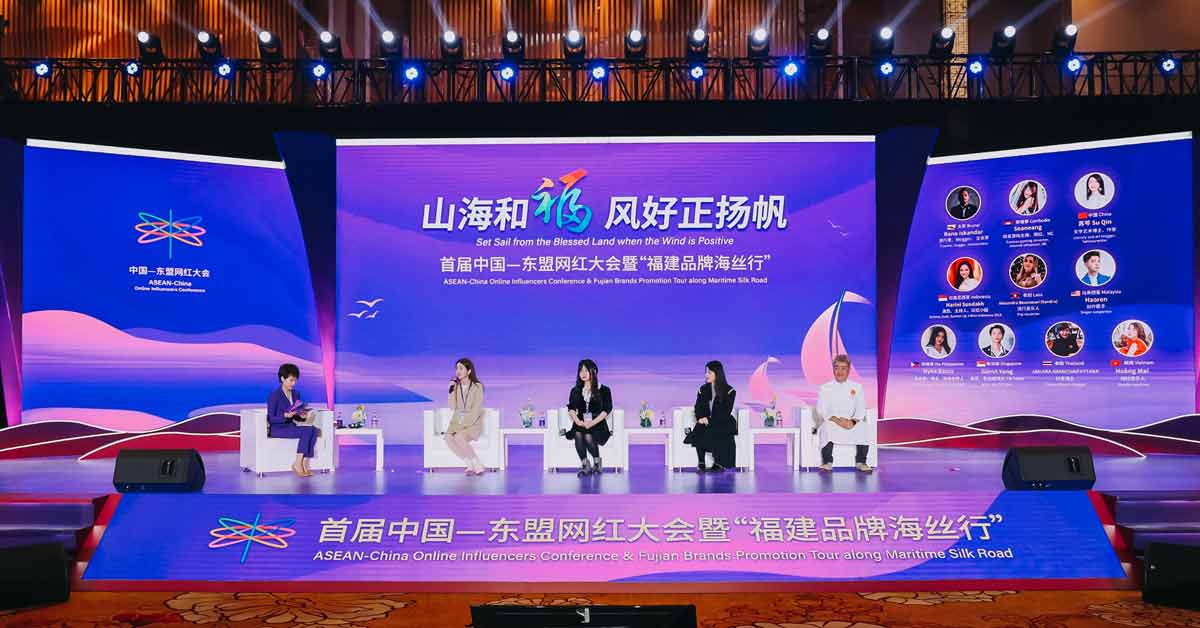Last year marked the 30th anniversary of The Association of Southeast Asian Nations (ASEAN)-China Dialogue Relations. The two sides, ASEAN and China, have come a long way since the establishment of the ASEAN-China Dialogue Relations in 1991. After three decades of fruitful, productive, and friendly relations between the two sides, ASEAN-China dialogue relations have been elevated to a “comprehensive strategic partnership.”
The three-decade ASEAN-China Dialogue Relations has paved the way for a stronger strategic partnership between ASEAN and China. As President Xi Jinping pointed out, “The China-ASEAN relationship has grown into the most successful and vibrant model for cooperation in the Asia-Pacific and an exemplary effort in building a community with a shared future for mankind.”
ASEAN is a regional bloc consisting of 10 member states in Southeast Asia, promoting intergovernmental cooperation and facilitating economic, political, security, military, educational, and socio-cultural integration between member states.
The Conference
In line with the commemoration of the 30th anniversary of ASEAN-China Dialogue Relations and the coming into force of the Regional Comprehensive Economic Partnership (RCEP) on 1 January 2022, the world's largest trade deal that will surely bring forth new trade and economic opportunities to the 10 member states of ASEAN and its trading partners like China, Japan South Korea, New Zealand, and Australia, the first “ASEAN-China Online Influencers Conference and Fujian Brands Promotion Tour along Maritime Silk Road” were held in Fuzhou, Southeast China’s Fujian Province from 11 to 13, January, 2022.
The theme of the conference was “Set Sail from Blessed Land when the Wind is Positive.” The event was co-sponsored by the Fujian Provincial People’s Government, particularly by the Department of Commerce of Fujian Province, the Foreign Affairs Office of the People’s Government of Fujian Province, and Fuzhou Municipal People’s Government, the ASEAN-China Centre, and the Global Times Online.
The conference carried the objective of enhancing mutual understanding and bilateral exchanges between China and ASEAN countries. ASEAN diplomats in China, senior government officials, scholars, media representatives/practitioners, online celebrities, and influencers from ASEAN member states and China participated in it.
The event focused on economic and trade cooperation and cultural exchanges between China and ASEAN and three dialogue sessions on the digital economy, influencer economy, and cross-border e-commerce were held.
Both online and offline discussions were carried out at the event focusing on the correlation between influencer economy and cross-border e-commerce. The in-depth exchanges between Chinese and ASEAN online influencers reflected their expectation for the future development of e-commerce.
China's Assistant Foreign Minister Hua Chunying delivered a speech via video link. She noted that the fruits of China-ASEAN cooperation in the past 30 years are made possible by the right historical choices taken by the farsighted leaders of the two sides who have embraced the trend of the times. They are also a result of the unique ties between the two sides marked by geographical proximity and cultural affinity.
She said that online influencers tell the best stories and write history every day. “Creative and empathetic, you are sharing the emotional highs and lows of ordinary people on social media and the internet. Their experience of small serendipities and pursuit of big dreams strike a chord with every one of us and draw people closer across national borders,” she remarked.
During the three-day event, ASEAN diplomats to China and representatives from media organizations and Chinese and ASEAN online influencers learned about Fuzhou’s experience in developing the digital industry. They experienced the culture of Fujian province through field visits and online activities. They also shared what they saw and felt in the city on social media platforms.
The event also acted as a matchmaker between Chinese and ASEAN enterprises. Fujian Asia-Pacific Economic and Trade Cooperation Promotion Association, China's first provincial-level business association, responding to the RCEP agreement, set the stage for a series of agreements between Chinese and ASEAN industries, including a US$5.6 billion intended deal inked by Fujian’s Eversun Holdings Group to invest in an ASEAN refinery.
Influencers’ Aspirations
In a dialogue session, Chinese influencers shared the stories of their exchanges with ASEAN netizens, hoping to contribute to the cooperation between China and ASEAN through their influence that could facilitate closer economic ties and robust cross-border e-commerce between and among ASEAN member states and China.
The ASEAN influencers, on the other hand, expressed similar aspirations. Cambodian gaming streamer Seaneang said that China and Cambodia enjoy a long history of friendship. She hopes to further the exchanges between the cultures of the two countries despite their differences.
Indonesian influencer Harini Riswanda introduced her efforts to maintain strict inspection and integrity when promoting cross-border e-commerce. Alexandra Bounxouei from Lao said that music and media bring the people from her country and China closer, though they speak different languages and have different cultures and traditions.
Conclusion
The conference, no doubt, has expanded new spaces for online influencers from ASEAN countries and China in telling stories about China-ASEAN “comprehensive strategic partnership and cooperation” within the RCEP framework.
The event mirrored the broad cooperation between ASEAN member states and China on people-to-people exchanges and witnessed the deepening regional economic integration between the two sides.
Undoubtedly, the 1st ASEAN-China Online Influencers’ Conference has contributed to facilitating and forging more robust and deeper ASEAN-China dialogue relations, which will continue to deliver tangible and concrete benefits to the peoples of ASEAN and China despite the many challenges along the way.
Over the past 30 years, through thick and thin, both ASEAN and China have recognised the importance of maintaining open-minded, rational, friendly, and mutually beneficial relations and cooperation.
The views expressed in this article are the author’s own and do not necessarily reflect those of The ASEAN Post.

